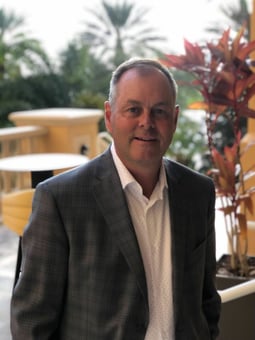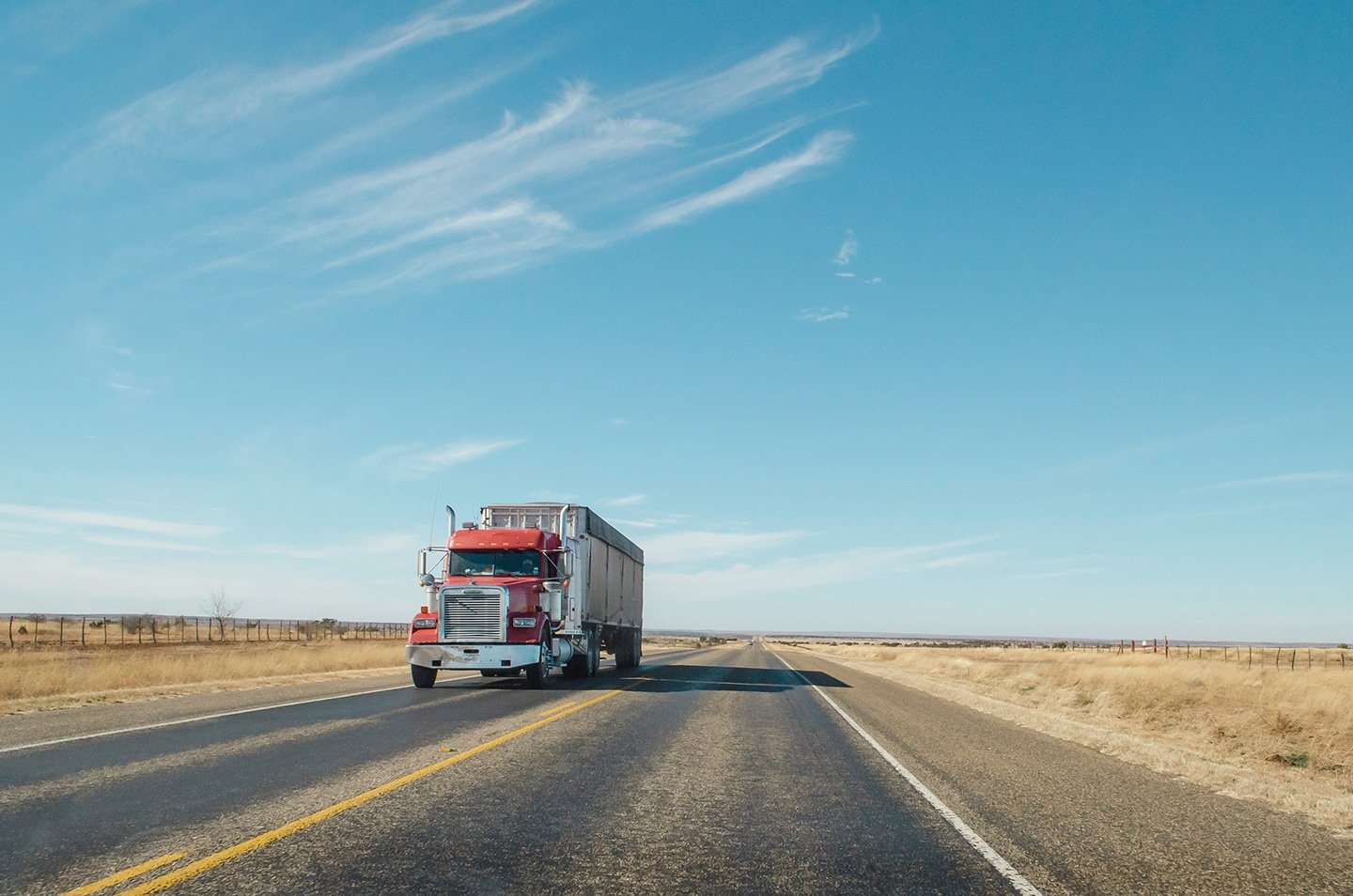
Even in ideal circumstances, the supply chain never sleeps, but the past two years have delivered the ultimate cocktail of bottlenecks for transportation providers, which put the finest talents to the test. Food Shippers of America just released its 2022 Food Chain Pros to Know, a list that included our very own Rob Lafollete, VP of Sales. Before joining the Transfix team, he worked for top industry brands like U.S. Xpress, Swift, and XPO Logistics. In an era rife with unpredictability, supply chain investment and tech innovation, Rob is using his 30 years of experience to mentor and learn from the new generation of industry talent.
Corrie White, Transfix’s marketing manager of shipper content and community, recently sat down with Rob to talk about the story of his career, the importance of a people-first culture, and how the transportation world might not always be pretty, but it’s more important than ever.
CW: I understand that after building a strong regional customer base at Swift for over a decade, you and another team member built Swift Logistics. What was it that ultimately brought you to Transfix?
RL: I was looking for an opportunity to use my knowledge and experience to help build something, but also mentor. When Transfix reached out, I had a lot of questions, but after considering the solution they were building, I was excited to join the company as hopefully my last stop. Being able to build something is great, and we’ve accomplished incredible things. I feel like I have really been a strong asset in helping arrive to where we are.
As a company, we do a great job of treating our people extremely well and listening to everyone’s voice. We’ve done a great job making the transportation industry easier to navigate with a digital touch. It’s no longer the old school dialing-for-diesel concept, which helps build very strong partnerships.
CW: You have made significant strides in deepening relationships with over 150 top food shippers. What are some insights you can share about building relationships and trust with shippers to help unlock opportunities in their supply chain?
RL: Relationships go a long way. The industry is so tight knit. People talk. Building confidence in the partnership with one account also passes over to other accounts, because people want to make sure that they can have confidence in you, that what I am saying or what I am selling we’re actually going to provide. I don’t hide from issues. I jump in with both feet and probably help out more than I even should. Even though I sold it, it’s a reflection of who we are as a company and our culture at Transfix. If we’re going to sell something, we’ve got to back it up.
For most shippers out there, what’s top of mind is really having the capacity and the trust in a group that the freight will get picked up and delivered on time. You’re also starting to see shippers pursue more of the green initiatives, so we as the transportation provider want to help them meet those goals.
CW: There are still pervasive worries or fears that technology and automation is going to remove that human touch and that importance of relationships. Since you are still very much in touch with customers and foster those relationships, how can you speak to those fears?
RL: I don’t think anything can be a hundred percent automated. One, you’re never gonna take away that personal touch. This is a relationship business. Our systems and the technology that we have in place do an incredible job, but there is always a place for that human touch that actually builds that partnership. I do not believe you can build a partnership based on automation alone.
CW: There’s a lot of conversation now about Generation Z in the workplace, as well as the Great Resignation – people changing careers to pursue more purpose. I’m curious what you’ve seen out of the younger workforce in terms of what you can learn from and teach them.
RL: There was a time that the Transfix team was hiring a lot of non-logistics folks who come in with that learning curve. This created the opportunity for me to become a mentor and pass that information on even if it’s just the lingo of transportation. On paper, trucking’s easy, right? But moving a truck from point A to point B isn’t as easy as everybody thinks it is. But more than in the past, people are willing to reach out to learn. In today’s generation, people definitely hide behind technology and avoid phone calls, but I’m old school and encourage them to call the customer.
This generation wants to be successful and continue to grow where in the past people got complacent in the same job for 20 or 30 years. But this generation will move jobs if it’s not fulfilling. Now more than ever, it’s important to make sure that we realistically keep people learning, engaged, and fulfilled so that hopefully it’s not a two or three year turn.
CW: You’ve certainly seen the industry evolve. What initially drew you to the industry and what keeps you here?
RL: I played basketball in college. My ultimate goal was to play in the NBA. I had a chance to go play basketball overseas. I decided not to and got married. I was going back and forth about whether to go to medical, dental, or physical therapy school. Then, my neighbor who worked in transportation asked if I’d come work for him. He probably asked me to come work because they had a company basketball team. I knew nothing about transportation, but once I got into it, it was interesting for me. When I got moved into sales, I just took off.
I love interacting and building relationships and partnerships with people. I love meeting face to face. I was having great success and continued to move up the ladder with it. You’ve probably heard many times that people say, once you’re in it, you can’t get out of it. It’s funny, and it’s probably true. I enjoy the solution building, that consultative type sales approach and feeling the success after it goes the way we’ve sold it or want it to go. Transportation is what moves everything around the country. It’s very important. We definitely have a huge hand in how the economy runs.




